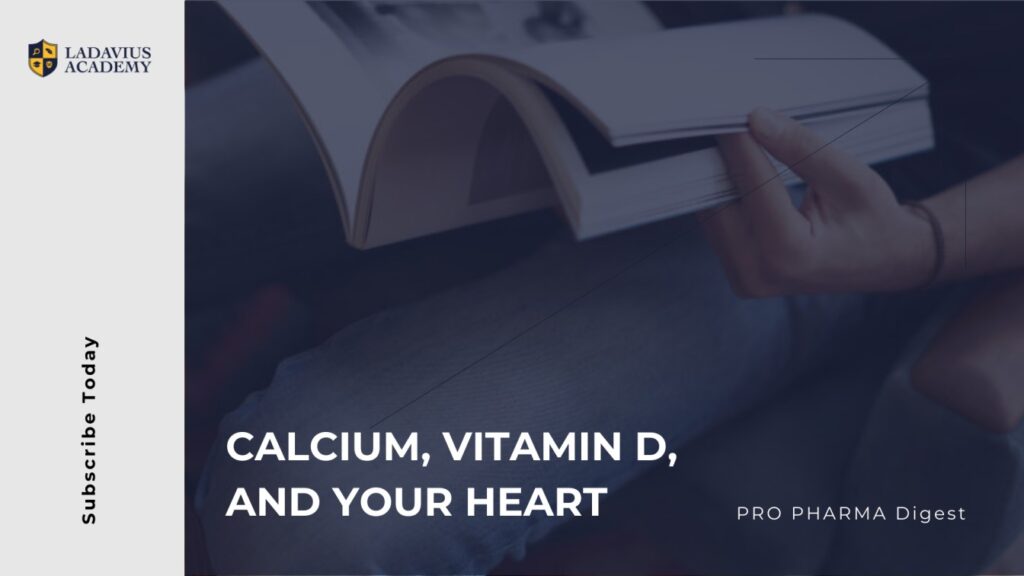Delving into the ongoing debate surrounding calcium and its potential link to an increased risk of cardiovascular disease (CVD), particularly when consumed through supplements.
Separating Dietary Calcium from Supplements
Previously, the medical community believed dietary calcium intake and coronary artery calcification (CAC) were independent factors. However, recent studies suggest a possible association between calcium supplements and CVD. This newfound risk appears to be specific to supplements, not the calcium we get from food sources like dairy products or leafy greens.
The Vitamin D Factor
Many calcium supplements are formulated to include vitamin D. Dr. Budoff highlights a potential synergistic effect between calcium and vitamin D, where they might amplify any negative cardiovascular effects on their own. He emphasizes the importance of maintaining vitamin D levels within the normal range (around 70 ng/mL) and avoiding “supratherapeutic” levels (above 100 ng/mL) for individuals taking calcium supplements.
Diabetes and Kidney Function: A Cause for Caution
Studies have shown a potentially higher CVD risk associated with calcium supplements in patients with diabetes. Dr. Budoff theorizes that this might be linked to underlying kidney problems, which are more common in diabetic individuals. Patients with impaired kidney function are advised to exercise extra caution with calcium supplementation due to the potential for elevated serum calcium levels, a risk not observed with dietary calcium.
Tailored Recommendations for Patients
Dr. Budoff provides a set of practical recommendations:
- Patients with healthy bones and normal kidney function can take calcium supplements if needed to address deficiencies.
- Regularly monitor vitamin D levels and aim for the normal range, ideally not exceeding 100 ng/mL.
- Schedule regular checkups to monitor CAC scores, especially if taking high doses of calcium supplements.
- Patients with diabetes or compromised kidney function should be more cautious with calcium supplements and discuss appropriate dosage with their doctor.
The Final Word: Evolving Evidence
Research on the link between calcium and CVD risk is still evolving. While dietary calcium appears safe, the effects of calcium supplements, particularly when combined with high vitamin D levels, require further investigation. If you have concerns about your individual needs and risks, consult your doctor to discuss the best course of action for maintaining your bone health and cardiovascular well-being.
Posted June 2024.
Subscribe to our newsletter
Personalised by your preferences, subscribe to our newsletters to get the best of the Pharmaceutical Industry news in your inbox.
